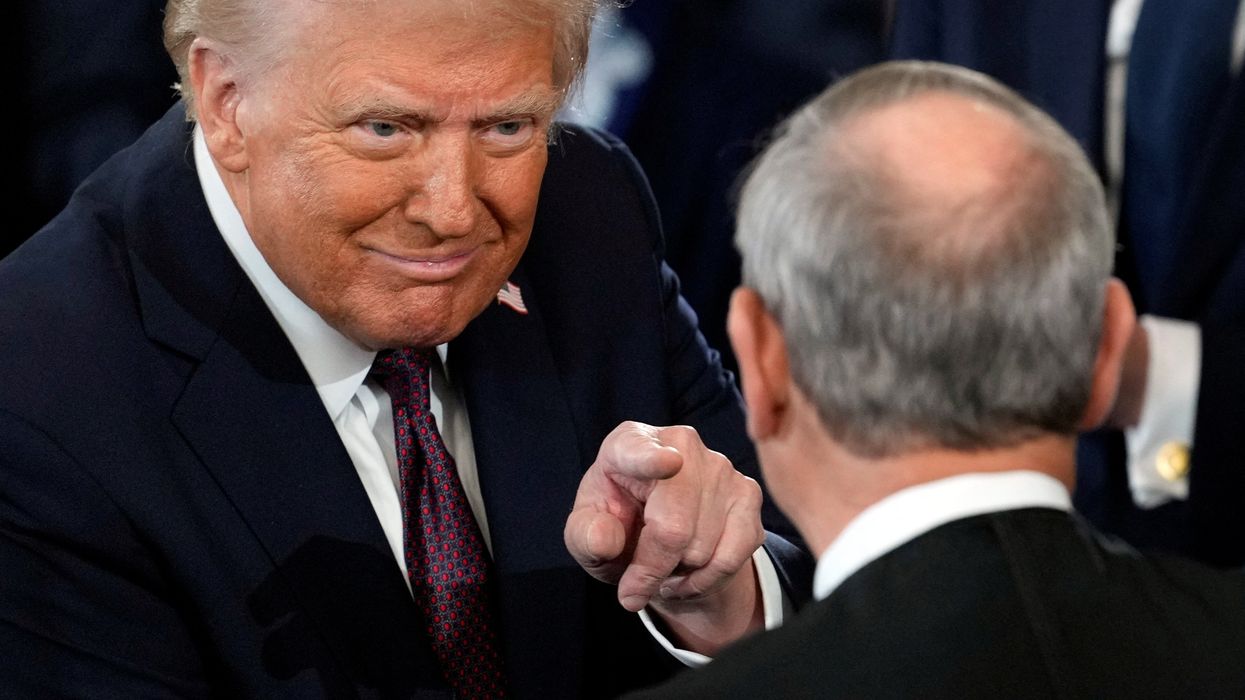In his 2024 year-end report, conservative U.S. Supreme Court Chief Justice John Roberts warned that the United States' system of checks and balances is undermined when federal court rulings are blatantly disregarded. But after Donald Trump returned to the White House, the president and some of his allies —including Vice President JD Vance, White House Press Secretary Karoline Leavitt and SpaceX/Tesla/X.com CEO Elon Musk — angrily railed against federal court judges who temporarily blocked some of his executive orders. Musk even called for them to be impeached by Congress.
In an article published on February 18, Salon's Sabrina Haake argues that Trump is showing contempt for the federal government's judicial and legislative branches — and that Roberts bears some of the blame.
"Within less than a month in office," Haake explains, "the Trump Administration exceeded its constitutionally authorized powers, diminished the role of Congress, and challenged the authority of the judiciary. Waving away his campaign pledge to lower the cost of groceries, Trump focused instead on maximal cruelty and political retribution dispersed with a wrecking ball. Article I of the Constitution gives Congress, not the president, the power to establish federal agencies and to appropriate money to run them."
READ MORE: George Conway: Trump’s 'pathological narcissism' is fueling 'full-scale' DOJ 'revolt'
Haake continues, "But instead of examining expenditures and functionalities with an eye toward cutting costs, Trump and ketamine-crusted Elon Musk are blowing up entire government institutions, some of which have been in existence since the Revolutionary War."
Haake is highly critical of the U.S. Supreme Court's 2024 ruling in Trump v. the United States, a 6-3 decision saying that presidents enjoy absolute immunity from criminal prosecution for "official acts" but not for unofficial acts. In her vehement dissent, Justice Sonia Sotomayor (a Barack Obama appointee) warned that the High Court's ruling encouraged presidents to abuse their executive powers. And Sotomayor offered an extreme example, saying that under Trump v. the United States' reasoning, a president could assassinate a political rival with impunity.
"As Trump serves up federal chaos as a surrogate for governance," Haake writes, "one wonders if this is what the federalist-majority Roberts Court had in mind when it gave Trump immunity from criminal prosecution and invited him to do his worst — a challenge Trump is embracing with drool on his chin. One also wonders whether the Court will use one of the many pending cases to delimit its immunity ruling, or will appease Trump to avoid a clash, thereby threatening the separation of powers and its own authority…. Trump's authoritarian rule disregards both Constitutional guardrails and federal statutes, limitations on power that would irritate any aspirant dictator for life."
The Salon journalist continues, "Staying in office permanently is a goal Trump has often repeated, a goal he tried to enforce through violence on January 6, 2021. Trump likely assumes he will die in prison if he loses power, and seems poised to either start a civil war or WW 3 to save himself. That he is not the first world leader to use violence or war to avoid prison offers cold comfort."
READ MORE: 'Time to think of Plan B': Musk ripped after forcing out Social Security chief
Sabrina Haake's full article for Salon is available at this link.


